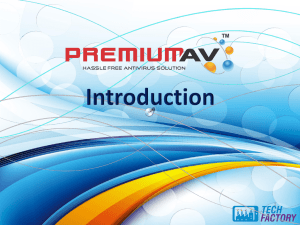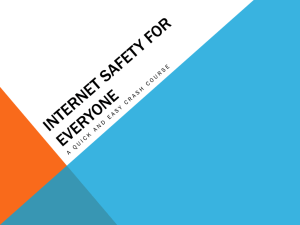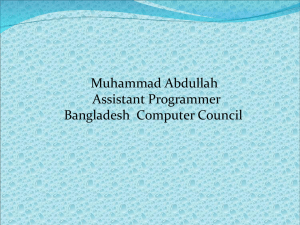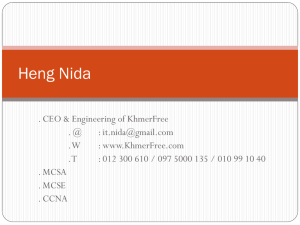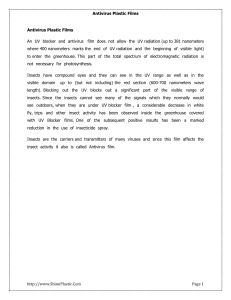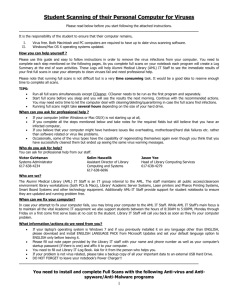Issue Specific Policy #1
advertisement
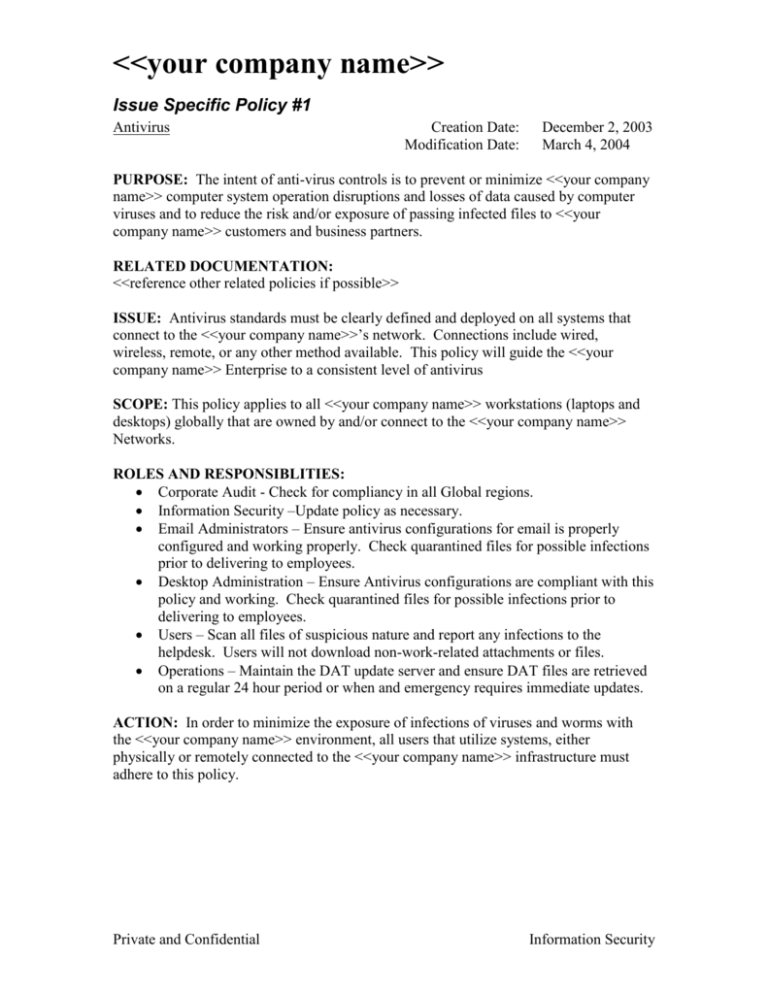
<<your company name>> Issue Specific Policy #1 Antivirus Creation Date: Modification Date: December 2, 2003 March 4, 2004 PURPOSE: The intent of anti-virus controls is to prevent or minimize <<your company name>> computer system operation disruptions and losses of data caused by computer viruses and to reduce the risk and/or exposure of passing infected files to <<your company name>> customers and business partners. RELATED DOCUMENTATION: <<reference other related policies if possible>> ISSUE: Antivirus standards must be clearly defined and deployed on all systems that connect to the <<your company name>>’s network. Connections include wired, wireless, remote, or any other method available. This policy will guide the <<your company name>> Enterprise to a consistent level of antivirus SCOPE: This policy applies to all <<your company name>> workstations (laptops and desktops) globally that are owned by and/or connect to the <<your company name>> Networks. ROLES AND RESPONSIBLITIES: Corporate Audit - Check for compliancy in all Global regions. Information Security –Update policy as necessary. Email Administrators – Ensure antivirus configurations for email is properly configured and working properly. Check quarantined files for possible infections prior to delivering to employees. Desktop Administration – Ensure Antivirus configurations are compliant with this policy and working. Check quarantined files for possible infections prior to delivering to employees. Users – Scan all files of suspicious nature and report any infections to the helpdesk. Users will not download non-work-related attachments or files. Operations – Maintain the DAT update server and ensure DAT files are retrieved on a regular 24 hour period or when and emergency requires immediate updates. ACTION: In order to minimize the exposure of infections of viruses and worms with the <<your company name>> environment, all users that utilize systems, either physically or remotely connected to the <<your company name>> infrastructure must adhere to this policy. Private and Confidential Information Security <<your company name>> Virus Scanning Antivirus must be configured for real-time scanning of all systems (workstations and servers). All files must be scanned for viruses. All systems must be automated to scan for viruses on a weekly basis. Users must be able to scan their local drives including laptop hard drives. It is the responsibility of the user to scan media and transferred files they receive. Scanning must be automated where possible. Users must not disable real-time scanning nor must they use anything beyond the <<your company name>> standard product tools to clean viruses. If additional support or tools are required, the user must contact their designated Help Desk. Media destined for customers or suppliers must be scanned with up to date virus software and definitions before they are released for delivery. Antivirus signature files (DATs) must be updated daily at a time that is not obtrusive to the business. Antivirus software (the client) must be updated yearly. Antivirus administrators must have a method to verify the success of updates for both DATs and clients and must confirm success quarterly. Antivirus alerting must be centralized and monitored regionally to identify outbreaks. When an outbreak is identified, the antivirus administrators must alert the Incident Response Team immediately and follow the Incident Response Procedures in the Information Security Policy. Virus scanning software should be set to automatically clean or delete infected files. If unable to clean/delete, quarantine for further review by the Email Administrators. All incoming and outgoing Email and attachments must be scanned for infections prior to being received at the user’s inbox. Outside Service Vendors A virus prevention clause is to be included in the standard rider used for software and consulting contracts BENEFITS: This process will help minimize the potential threat of virus and worm outbreaks at <<your company name>>. Having a central managed and monitored antivirus system in place allows for quick identification and remedy of virus outbreaks allowing Information Technology to quickly contain and eradicate the infections helping to minimize or prevent impact to the business. Private and Confidential Information Security
